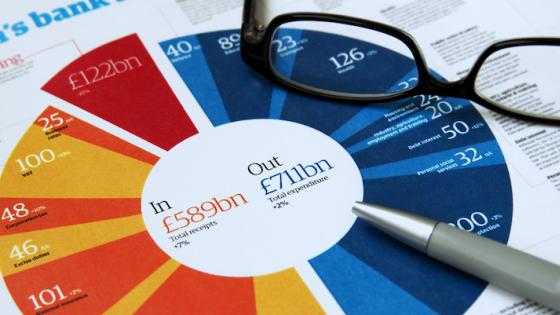
Government spending: Less may be more!
Roel Beetsma and Ludger Schuknecht argue that governments could and should deliver more for their citizens’ money.
Search the site

Roel Beetsma and Ludger Schuknecht argue that governments could and should deliver more for their citizens’ money.
Governments in advanced countries have reacted to the coronavirus pandemic with determined stimulus packages. This has helped to stabilise our economies and preserve enterprises and jobs.
However, this also got us into a situation of high public debt levels. These now average about 140% of GDP for the G7 — the same level as at the end of World War II. Japan tops the league with over 260% and Italy follows suit with about 160%. The US general government debt will exceed 130% at the end of this year according to the IMF, and the UK, Canada, France and Spain are not too far behind. This was unthinkable only 13 years ago. Many argue that such high debt levels are ok with interest rates near zero and that, in fact, we need more deficit spending to stimulate demand, investment and growth. While no one is arguing in favour of retrenchment in the midst of the pandemic, those high debt levels are not ‘for free’. They make governments’ financial health more vulnerable to interest hikes and reduce the fiscal space needed to absorb future spending pressures.
When following a debt reduction strategy, it is tempting to go the route of higher taxes. Higher taxes are usually shared by the entire population, while spending reductions mostly hit specific groups that will fiercely oppose such reductions. Yet, many governments would do their populations a service by rethinking the size of their often-bloated public sectors. Big governments frequently create only limited value for the vast revenues they receive from their taxpayers. Not surprisingly, trust in these governments tends to be low. By contrast, countries like Switzerland and Ireland show the best results on the core state tasks of government with spending of only 30% of GDP or a little more – good framework conditions for investment, education, health, and public infrastructure, high per-capita income and a reasonably equal income distribution. In Asia, Korea and Singapore are also showing increasingly favourable economic and social indicators, while maintaining small governments. There are quite a few countries in between these extremes, like the US, the UK, the Netherlands, the Nordics or Germany, that do not do too badly. But in also in these countries, governments could and should deliver more for their citizens’ money.
This challenge will be even more important after the COVID-19 crisis, which pushed up public spending ratios in 2020 hugely to 47% in the US, to about 53% in the UK and Germany, and to almost 60% or more in Italy and France. The public spending challenge will be further aggravated by population ageing. Many Western societies will see public expenditure rise by another 4-5% points of GDP until 2050. This roughly corresponds to their education budget. Moreover, the global financial crisis added 30% on average to the existing public debt stock and up to 100% of GDP in the hardest hit countries. Even if banks have become stronger, there will always be new financial risks and crises we must be ready to absorb. These challenges will make it more important than ever to control debt and spending and enhance the productivity of public spending. The increasing political power of the elderly and the continuation of financial bailouts do not bode well in this respect.
Perhaps there are deeper issues that explain why appeals for fiscal discipline go unheard. Our expectations about what governments should do for us seem to be ever increasing, especially in insuring us against all risks. Even though politicians try to accommodate this, people are still unhappy as more can always be done, while what is done is often not done well. Consequently, unsustainable debt and spending put at risk the very economic and social stability public spending tries to support.
What do we do in our regular lives to deal with unlimited expectations and limited means? We create rules. Rules-based policymaking is also the route to better performing and solvent governments. Even if this takes some time following the Covid-19 crisis, we should start thinking about this now. And when existing rules do not work well enough, such as is the case with the EU’s Stability and Growth Pact, they should be improved. It’s the best way to foster robust growth, equal opportunity and social stability while also mastering climate change.